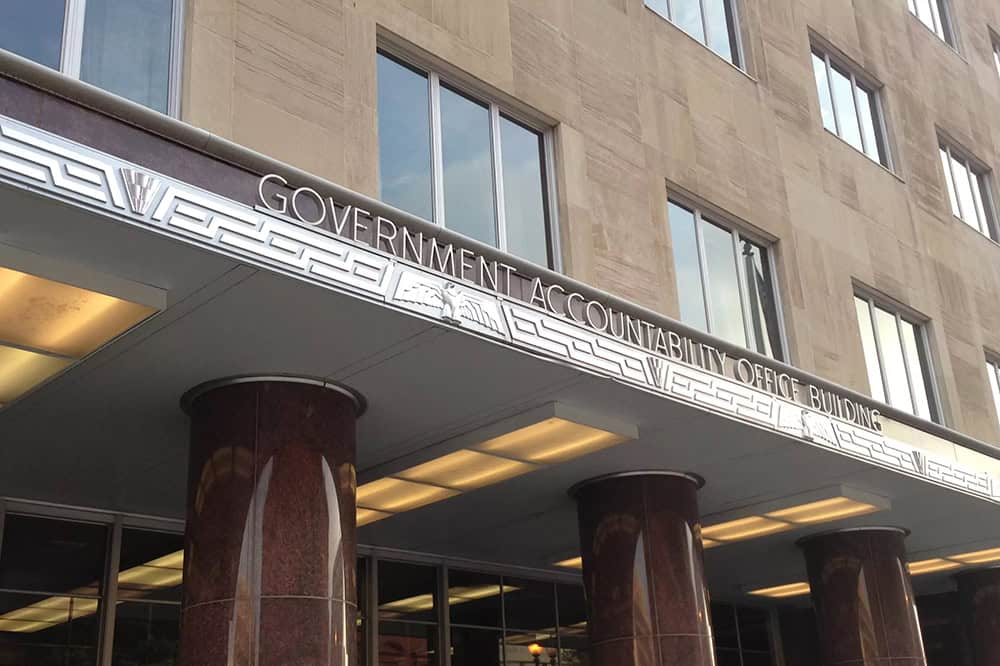As Fiscal Confidence Index Remains Low, New Polling Shows Overwhelming Bipartisan Support for Fiscal Commission
8-in-10 Voters Agree a Bipartisan Fiscal Commission would Strengthen Social Security and Benefit the Economy
With 2024 Campaign Underway, 92% of Voters are More Likely to Support a Candidate that Backs a Fiscal Commission to Reduce the National Debt
NEW YORK (January 25, 2024) — As Congress navigates funding deadlines, and following last week’s action on Fiscal Commission legislation by the House Budget Committee, new polling shows overwhelming bipartisan support for a dedicated process to recommend solutions for America’s fiscal challenges. In addition, January’s U.S. Fiscal Confidence Index, modeled after the Consumer Confidence Index, held at 41 (100 is neutral), indicating Americans’ deep concerns about the $34 trillion national debt.
Significant majorities of voters across party lines agree that a commission would strengthen Social Security for future generations, lower borrowing costs for consumers and for the government, help ensure fairness in our tax system, and improve our economic outlook. Moreover, as the 2024 campaign season gets underway, more than nine-in-ten voters would be more likely to support a candidate that supports a bipartisan fiscal commission to reduce the national debt, including 92% of Democrats and 94% of Republicans.
“A bipartisan fiscal commission is gaining momentum in Congress, and voters are overwhelmingly in support of this key step toward fiscal sustainability,” said Michael A. Peterson, CEO of the Peterson Foundation. “Americans are in widespread agreement that a commission would benefit our budget and economy, lower interest costs, and strengthen key programs like Social Security. As the 2024 campaign heats up, voters are calling on candidates to show leadership by backing a fiscal commission to address our unsustainable national debt.”
The poll, jointly conducted by Democratic firm Global Strategy Group and Republican firm North Star Opinion Research on January 16 and 17, surveyed 1,001 registered voters. Below are highlights, and the full results can be found here.
Substantial majorities of U.S. voters across party lines agree that a bipartisan commission to reduce the national debt would . . .
- Strengthen Social Security (87% overall, including 87% of Democrats and 86% of Republicans)
- Reduce record interest costs on the national debt (87% overall, including 86% of Democrats and 89% of Republicans)
- Lower borrowing costs for consumers for things like mortgages, auto loans and credit card balances (84% overall, including 86% of Democrats and 83% of Republicans)
- Improve the U.S. economic outlook (89% overall, including 89% of Democrats and 88% of Republicans)
- Help ensure the U.S. tax system is fair and can fund the promises made (84% overall, including 85% of Democrats and 83% of Republicans)
- Help free up resources needed to address priorities like climate change, national security, infrastructure and healthcare (82% overall, including 86% of Democrats and 77% of Republicans)
As Social Security faces an across-the-board 23% cut in less than 10 years, 76% of voters, including 78% of Democrats and 74% of Republicans, support a bipartisan fiscal commission that would put a plan in place to prevent these automatic cuts.
Additionally, 7-in-10 voters say rising interest costs and the government spending more than $2 billion per day on interest make it more urgent for lawmakers to form a fiscal commission.
More broadly, the U.S. Fiscal Confidence Index found that 82% of voters are calling on the president and Congress to spend more time addressing the national debt, with 79% of voters who believe the debt should be a top-three priority for policymakers.
The Fiscal Confidence Index measures public opinion about the national debt by asking six questions in three key areas:
- CONCERN: Level of concern and views about the direction of the national debt.
- PRIORITY: How high a priority addressing the debt should be for elected leaders.
- EXPECTATIONS: Expectations about whether the debt situation will get better or worse in the next few years.
The survey results from these three areas are weighted equally and averaged to produce the Fiscal Confidence Index value. The Fiscal Confidence Index, like the Consumer Confidence Index, is indexed on a scale of 0 to 200, with a neutral midpoint of 100. A reading above 100 indicates positive sentiment. A reading below 100 indicates negative sentiment.
Fiscal Confidence Index Key Data Points:
- The January 2024 Fiscal Confidence Index value is 41. (The December value was 41. The November value was 37.)
- The current Fiscal Confidence Index score for CONCERN about the debt is 31, indicating deep concern about the debt. The score for debt as a PRIORITY that leaders must address is 22, indicating that Americans want elected leaders to make addressing long-term debt a high priority. The score for EXPECTATIONS about progress on the debt is 69. The Fiscal Confidence Index is the average of these three sub-category scores.
- For a description of the complete methodology, see the Appendix below.
The Peter G. Peterson Foundation commissioned this poll by the Global Strategy Group and North Star Opinion Research to survey public opinion on the national debt. The online poll included 1,001 registered voters nationwide, surveyed between January 16, 2024 and January 17, 2024. The poll has a margin of error of +/- 3.1%. The poll examined voters’ opinions on the national debt, political leadership, and America’s fiscal and economic health.
Detailed poll results can be found online at: www.pgpf.org/FiscalConfidenceIndex.
About the Peter G. Peterson Foundation
The Peter G. Peterson Foundation is a nonprofit, nonpartisan organization that is dedicated to increasing public awareness of the nature and urgency of key fiscal challenges threatening America’s future, and to accelerating action on them. To address these challenges successfully, we work to bring Americans together to find and implement sensible, long-term solutions that transcend age, party lines and ideological divides in order to achieve real results. To learn more, please visit www.pgpf.org.
APPENDIX: Fiscal Confidence Index Methodology and Questions
- The Fiscal Confidence Index is released monthly by the Peter G. Peterson Foundation.
- The Fiscal Confidence Index value is based on six questions in three categories.
- As is done with the Consumer Confidence Index, the first step in calculating the Fiscal Confidence Index is determining the “Relative Value” for each question. This calculation is made by taking the positive response for each question and dividing it by the sum of the positive and negative responses. Each question was asked on a four-point scale, and answers were weighted according to intensity, with the strongest responses counting twice as much as the middle responses (“much” better or worse answers count twice as heavily as “somewhat” better or worse answers).
- The scores for the Concern, Priority, and Expectations categories are determined by averaging the scores derived from the two questions in each category.
- The Fiscal Confidence Index value is converted from the Relative Value to place it on a scale on which 100 indicates equal positive and negative sentiment, while values below 100 indicate negative sentiment and values above 100 indicate positive sentiment.
- The questions are as follows:
| CONCERN (31) | |||
|---|---|---|---|
| Thinking about our national debt over the last few years, would you say your level of concern has increased or decreased? ◊ Is that a lot or just a little? |
January 2024 | December 2023 | November 2023 |
| Increased a lot | 51% | 51% | 55% |
| Increased a little | 29% | 28% | 27% |
| Decreased a little | 5% | 5% | 4% |
| Decreased a lot | 2% | 2% | 2% |
| (No change) | 9% | 10% | 10% |
| (Don’t Know/Refused) | 4% | 4% | 2% |
| INCREASED (NET) | 80% | 79% | 82% |
| DECREASED (NET) | 7% | 7% | 6% |
| When it comes to addressing our national debt, would you say things in the United States are heading in the right direction or do you think things are off on the wrong track? ◊ Do you feel that way strongly or just somewhat? |
January 2024 | December 2023 | November 2023 |
| Right direction — Strongly | 8% | 9% | 7% |
| Right direction — Somewhat | 19% | 18% | 19% |
| Wrong track — Somewhat | 25% | 26% | 27% |
| Wrong track — Strongly | 41% | 41% | 43% |
| (Neither/Mixed) | 1% | 2% | 1% |
| (Don’t Know/Refused) | 5% | 4% | 3% |
| RIGHT DIRECTION (NET) | 28% | 27% | 26% |
| WRONG TRACK (NET) | 67% | 67% | 70% |
| PRIORITY (22) | |||
|---|---|---|---|
| Some people say that addressing the national debt should be among the president and Congress’ top 3 priorities. Do you agree or disagree? ◊ Do you feel that way strongly or just somewhat? |
January 2024 | December 2023 | November 2023 |
| Strongly agree | 53% | 51% | 54% |
| Somewhat agree | 25% | 25% | 23% |
| Somewhat disagree | 13% | 14% | 14% |
| Strongly disagree | 3% | 4% | 5% |
| (Don’t Know/Refused) | 5% | 6% | 5% |
| AGREE (NET) | 79% | 77% | 76% |
| DISAGREE (NET) | 16% | 18% | 19% |
| And when it comes to our national debt, do you think it is an issue that the president and Congress should spend more time addressing or less time addressing? ◊ Would you say a lot (more or less) time or just a little? |
January 2024 | December 2023 | November 2023 |
| A lot more time | 53% | 50% | 52% |
| A little more time | 29% | 29% | 30% |
| A little less time | 5% | 6% | 6% |
| A lot less time | 4% | 5% | 4% |
| (The same amount of time) | 3% | 4% | 3% |
| (Don’t Know/Refused) | 6% | 6% | 4% |
| MORE TIME (NET) | 82% | 79% | 82% |
| LESS TIME (NET) | 9% | 11% | 10% |
| EXPECTATIONS (69) | |||
|---|---|---|---|
| And thinking about our national debt over the next few years, do you expect the problem to get better or worse? ◊ Is that much (better or worse) or just somewhat (better or worse)? |
January 2024 | December 2023 | November 2023 |
| Much better | 8% | 8% | 6% |
| Somewhat better | 20% | 18% | 17% |
| Somewhat worse | 32% | 30% | 32% |
| Much worse | 33% | 34% | 38% |
| (No change) | 2% | 3% | 3% |
| (Don’t know/Refused) | 5% | 6% | 4% |
| BETTER (NET) | 28% | 26% | 23% |
| WORSE (NET) | 65% | 64% | 70% |
| And when it comes to our national debt, are you optimistic or pessimistic that the United States will be able to make progress on our national debt over the next few years? ◊ Would you say you are very (optimistic or pessimistic) or just somewhat? |
January 2024 | December 2023 | November 2023 |
| Very optimistic | 7% | 7% | 6% |
| Somewhat optimistic | 35% | 31% | 30% |
| Somewhat pessimistic | 33% | 36% | 36% |
| Very pessimistic | 19% | 17% | 21% |
| (Neither/Mixed) | 2% | 4% | 3% |
| (Don’t Know/Refused) | 4% | 5% | 3% |
| OPTIMISTIC (NET) | 42% | 39% | 37% |
| PESSIMISTIC (NET) | 51% | 53% | 57% |
Further Reading
Growing National Debt Sets Off Alarm Bells for U.S. Business Leaders
Debt rising unsustainably threatens the country’s economic future, and a number of business leaders have signaled their concern.
How Much Can the Administration Really Save by Cutting Down on Improper Payments?
Cutting down on improper payments could increase program efficiency, bolster Americans’ confidence in their government, and safeguard taxpayer dollars.
What Is R Versus G and Why Does It Matter for the National Debt?
The combination of higher debt levels and elevated interest rates have increased the cost of federal borrowing, prompting economists to consider the sustainability of our fiscal trajectory.


